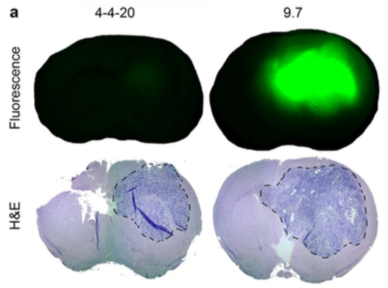
Amelia Haj chosen for overseas medical ethics program
A student at the University of Wisconsin School of Medicine and Public Health has been chosen for a unique European medical ethics program.

From lab to bedside, the Wisconsin Idea is all for the good of the patients
As doctors and leaders of health care systems, we are in business for only one reason — the patients and communities we serve.

Researchers develop ways to identify potency of certain stem-cell treatments
Two new methods have been developed to test the health and potency of cells grown in a lab for use in some stem-cell treatments, which could lead to far more effective prediction of potency for clinical trials.

Study destroys myth that motorcycle helmets break necks
While some riders claim that motorcycle helmets can break necks during a crash, a University of Wisconsin-Madison study shows they have the opposite effect.

Dense breasts and inflammation further linked to breast cancer risk
A new study by University of Wisconsin Carbone Cancer Center researchers has found that dense breasts and inflammation are associated with poor prognosis in breast-cancer patients, and suggests that an FDA-approved drug may improve prognosis for those patients with dense breasts.

Viral replication discovery could spur new broad-spectrum antivirals
Scientists at the Morgridge Institute for Research have discovered a new Achilles heel in the replication process of positive-strand RNA viruses, a class responsible for health threats such as Zika, polio, chikungunya and hepatitis C.

Swallowing problems increase risk of death, nursing home admissions
Patients with trouble swallowing following a stroke or other medical event are more likely to die in the hospital, and had longer and more expensive hospital stays, according to analysis led by researchers from the University of Wisconsin School of Medicine and Public Health.

UW study questions link between Zika, microcephaly in 2015 Brazil case
A recently published study casts doubt on two major claims about Zika virus infection and microcephaly: first, that there was an outbreak of newborn microcephaly in Brazil in 2015; and second, that maternal Zika virus infection was responsible for the outbreak.

New study to help women make better breast-cancer surgery decisions
Women face big decisions soon after being hit with a cancer diagnosis, including whether to have a breast-conserving lumpectomy or mastectomy.

UW study uses ‘bio-panning’ to find human antibodies for brain cancer stem cells
Using a method described as similar to panning for gold, Carbone Cancer Center scientists discovered human antibodies for the cancer stem cells of glioblastoma, one of the most difficult brain cancers to treat.

UW Carbone oncologist leads effort to educate about cancer risk of alcohol
Drinking alcohol increases the risk of several types of cancer, something many of Dr. Noelle LoConte’s patients are surprised to learn.

Finding by neurosurgeon Amgad Hanna rewrites anatomy textbooks
Neurosurgeon Amgad Hanna knew that what he saw in the operating room did not match the diagrams depicted in anatomy textbooks.